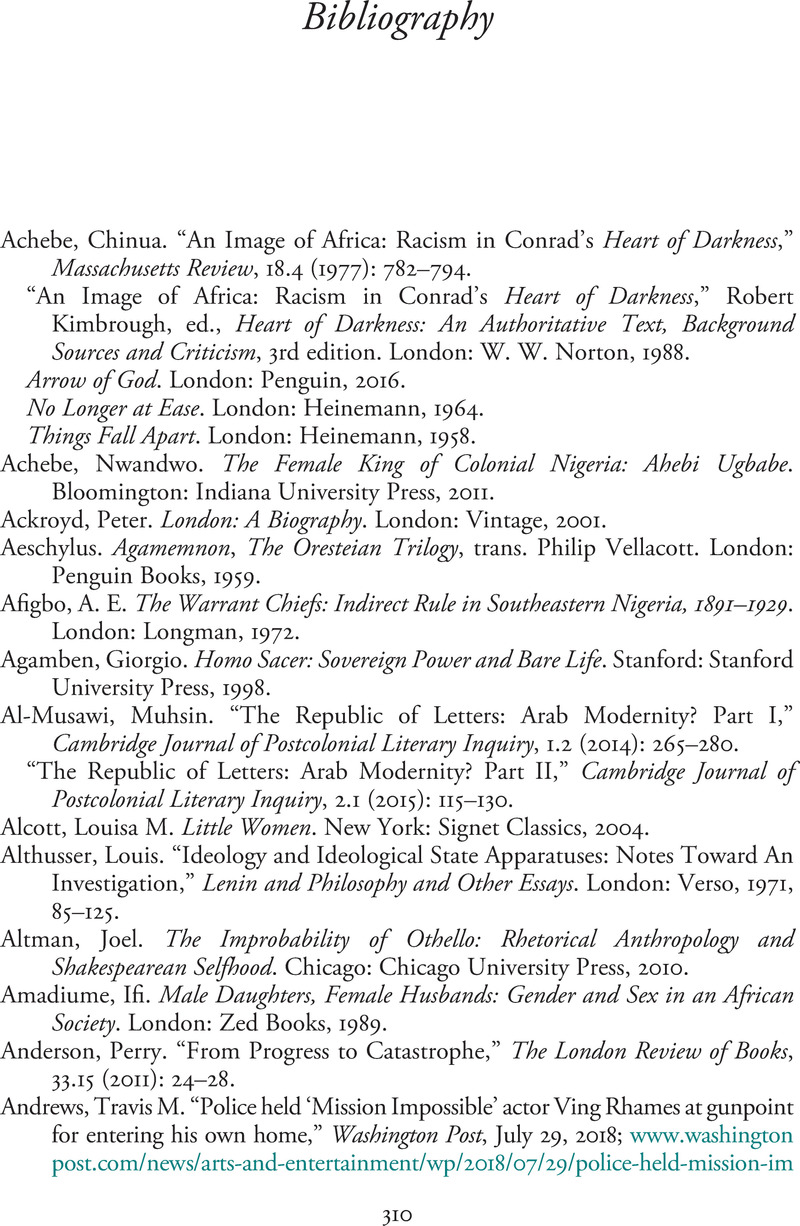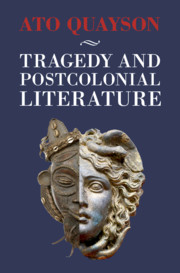Book contents
- Tragedy and Postcolonial Literature
- Tragedy and Postcolonial Literature
- Copyright page
- Dedication
- Contents
- Preface and Acknowledgments
- Chapter 1 Introduction
- Chapter 2 Ethical Cosmopolitanism and Shakespeare’s Othello
- Chapter 3 History and the Conscription to Colonial Modernity in Chinua Achebe’s Rural Novels
- Chapter 4 Ritual Dramaturgy and the Social Imaginary in Wole Soyinka’s Tragic Theatre
- Chapter 5 Archetypes, Self-Authorship, and Melancholia
- Chapter 6 Form, Freedom, and Ethical Choice in Toni Morrison’s Beloved
- Chapter 7 On Moral Residue and the Affliction of Second Thoughts
- Chapter 8 Enigmatic Variations, Language Games, and the Arrested Bildungsroman
- Chapter 9 Distressed Embodiment and the Burdens of Boredom
- Chapter 10 Conclusion
- Bibliography
- Index
- References
Bibliography
Published online by Cambridge University Press: 05 February 2021
- Tragedy and Postcolonial Literature
- Tragedy and Postcolonial Literature
- Copyright page
- Dedication
- Contents
- Preface and Acknowledgments
- Chapter 1 Introduction
- Chapter 2 Ethical Cosmopolitanism and Shakespeare’s Othello
- Chapter 3 History and the Conscription to Colonial Modernity in Chinua Achebe’s Rural Novels
- Chapter 4 Ritual Dramaturgy and the Social Imaginary in Wole Soyinka’s Tragic Theatre
- Chapter 5 Archetypes, Self-Authorship, and Melancholia
- Chapter 6 Form, Freedom, and Ethical Choice in Toni Morrison’s Beloved
- Chapter 7 On Moral Residue and the Affliction of Second Thoughts
- Chapter 8 Enigmatic Variations, Language Games, and the Arrested Bildungsroman
- Chapter 9 Distressed Embodiment and the Burdens of Boredom
- Chapter 10 Conclusion
- Bibliography
- Index
- References
Summary

- Type
- Chapter
- Information
- Tragedy and Postcolonial Literature , pp. 310 - 326Publisher: Cambridge University PressPrint publication year: 2021



